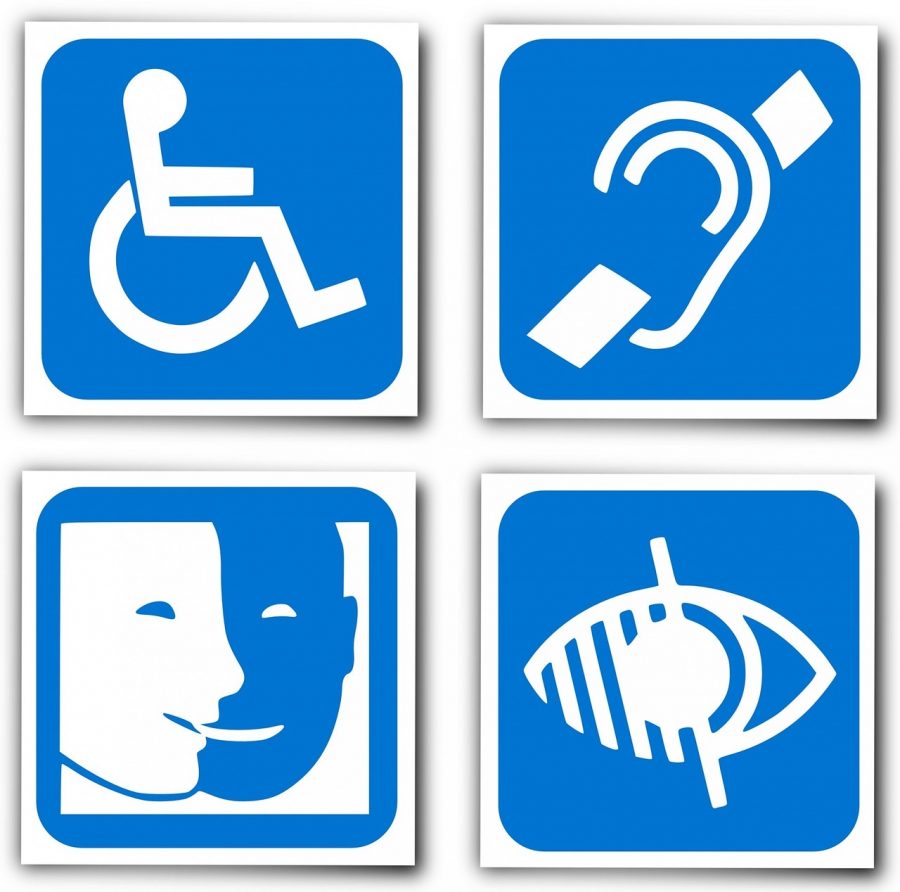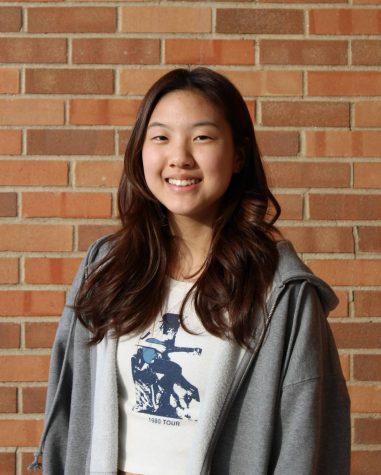A step into the lives of people with disabilities during Covid-19
October 28, 2020
People with disabilities face conflicts that are incomparable to the ones that we face. Oftentimes, we fail to consider these conflicts, which have been especially heightened during the pandemic. Though loneliness, fear, and boredom during the pandemic are not easy to cope with, there must be thoughtfulness and education on the harsher obstacles like unintentional increased exposure to the virus, lack of necessary healthcare, and difficulties in communication for people with disabilities.
Here is the story of David, which was told by the International Disability Alliance, who is visually impaired due to glaucoma. His anxiety about contracting COVID-19 has been steadily increasing. When going to the grocery store for food, he experiences challenges from people that are unaware or ignorant of his disability. Oftentimes, people are more and more centered on the pandemic without pausing to consider people that are dealing with much harder circumstances.
After walking down a one-way lane in the wrong direction, David was almost kicked out for not following social distancing rules. The IDA mentions, “He was told by staff and customers to ‘smart up’, and to bring somebody with him next time.”
For several people with disabilities, many are unfortunately forced to experience a significantly increased probability of contracting COVID-19. One example is in the regulation of hand-washing. As many may know, washing your hands is vital in preventing the virus from getting inside your body. However, certain disabilities make it hard for people to physically wash hands frequently.
Additionally, some disabilities include conditions that heighten symptoms and make it much more fatal if the person gets the virus. TIME mentions how Jeiri Flores, who has cerebral palsy, is in a situation like this because her disability weakens her immune system. She also recently got infected with pneumonia, making her even more susceptible to becoming seriously sick if getting COVID-19.
Some people require a caregiver or some kind of aide worker to assist them with some basic needs and functions. Now, this will add another obstacle for them, as this will virtually make social distancing impossible. Caregivers have their own share of exposure from people they meet and where they go, indirectly affecting the people with disabilities that they help. With their underlying conditions that could weaken their immune system, these exposures should not be overlooked.
Speaking of caregivers, the availability of health assistance is dwindling particularly during this crisis. Because most caregivers are provided by a Medicaid program and are not given proper health insurance or other PPE, most have to quit their job in fear of their own health and safety. But this forces people that are in need of help to make a choice: join a nursing home or find other home caregivers that are often less skilled and are used as assistants rather than full-time and experienced caregivers. Nursing homes are often avoided, as they are known to be hotspots of the virus.
The lack of care for these people is inhumane, as they are faced with a decision that inevitably will lead them to the same result of being exposed to COVID-19 and not getting the proper attention they require with their special conditions.TIME interviewed Julia Ramos, who has a grandmother who was living in a Long Island resident home. They discussed how New York started moving discharged patients, even ones that contracted coronavirus, into their resident homes. It seems as if no one cares for these ignored individuals with disabilities.
Not only does this apply to the aid they need, but also to the health resources. There are some materials like ventilators that coincide with the needs of both people that are infected with the virus and people with disabilities. There have been times of discrimination against people with disabilities with access to these medical resources. Some healthcare workers are putting the life of one above another. They should not have the right to take away something from someone with a disability who depends on it for their survival just because they discriminatorily think that someone without a disability has a life that is more meaningful. That is morally and ethically cruel. Flores says, “If I get corona, I’m gonna die because I’m disabled and someone along the lines has decided that my life is of less value. I’m not 30 yet. There’s still so much more that I have to do.’”
Lastly, communication remains more than ever a serious problem for people with disabilities. People that are visual, hearing, or cognitively impaired can have setbacks in being able to become up to date on the news that a pandemic is going on and what exactly they need to do in order to prevent getting infected by the virus. Bonnielin Swenor, a John Hopkins epidemiologist and ophthalmologist who is visually impaired, agrees that “[p]opular news sources may not be accessible, especially when information is changing quickly. I’m visually impaired and can attest to that.”
It is important to note the hardships that people with disabilities face during this pandemic. Our lack of awareness for their experiences leaves them to trek the hard path alone. For some, this pandemic is more than just avoiding becoming sick or being bored, it is about questioning their chance of coming out alive. A vast number of people are not paying attention, and instead complain about their smaller troubles. Some people with disabilities do not have the proper connection to the news, the health-related equipment required for their health and well-being, and the protection from the deadly virus in our midst, given their serious vulnerabilities. It is our duty to support our fellow friends and at least realize the dangers that they are battling.




